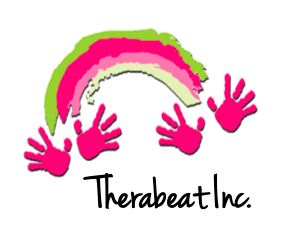Adapted From The American Music Therapy Association’s Website
Why Music Therapy For Individuals With Diagnoses On The Autism Spectrum?
The literature reports that most individuals with Autism respond positively to music. (DeMyer, 1974; Edgerton, 1994; Euper, 1968; Snell, 1996; Thaut, 1992).
People with Diagnoses on the Autism Spectrum often show a heightened interest & response to music, making it an excellent therapeutic tool.
Music is a very basic human response, spanning all degrees of ability/disability.
Music Therapists are able to meet clients at their own levels and allow them to grow from there. The malleability of music makes it a medium that can be adapted to meet the needs of each individual.
Music is motivating & enjoyable.
Music can promote relatedness, relaxation, learning & self-expression.
Music Therapy addresses multiple developmental issues simultaneously.
Music Therapy can provide success-oriented opportunities for achievement & mastery.
The structure & sensory input inherent in music help to establish response & role expectations, positive interactions & organization.
Check out the Ordahl Family’s Amazing Music Therapy Story below!
How Does Music Therapy Make A Difference For Individuals With Diagnoses On The Autism Spectrum?
Music Therapy can be effective in addressing the typical characteristics of Autism in the following ways:
Music is considered a “Universal Language” which provides bridges in a non-threatening setting between people and/or between individuals & their environment, facilitating relationships, learning, self-expression, & communication.
Music captures & helps maintain attention. It is highly motivating & engaging & may be used as a natural “reinforcer” for desired responses. Music therapy can stimulate clients to reduce negative and/or self-stimulatory responses & increase participation in more appropriate & socially acceptable ways.
Music Therapy can enable those without language to communicate, participate & express themselves non-verbally. Very often music therapy also assists in the development of verbal communication, speech, & language skills. The interpersonal timing & reciprocity in shared play, turn-taking, listening & responding to another person are augmented in music therapy with children & adults with autism to accommodate & address their styles of communication.
Music Therapy allows individuals with diagnoses on the Autism Spectrum the opportunity to develop identification & appropriate expression of their emotions.
Because music is processed in both hemispheres of the brain, music can stimulate cognitive functioning & may be used for remediation of some speech/language skills.
Music provides concrete, multi-sensory stimulation (auditory, visual & tactile). The rhythmic component of music is very organizing for the sensory systems of individuals diagnosed with Autism. As a result, auditory processing & other sensor-motor, perceptual/motor, gross & fine motor skills can be enhanced through Music Therapy.
Musical elements & structures provide a sense of security & familiarity in the music therapy setting, encouraging clients to attempt new tasks within this predictable but malleable framework.
Many people with diagnoses on the Autism Spectrum have innate musical talents; thus, music therapy provides an opportunity for successful experiences. Emphasis is placed on strength, which in turn may be utilized to address each individual’s areas of need.
Check out the Pachorek Family’s Amazing Music Therapy Story below!
How Does Music Therapy Help Families Of Individuals With Diagnoses On The Autism Spectrum?
Families of those with diagnoses on the Autism Spectrum may reap benefits from Music Therapy in the following ways:
An individual’s growth through music therapy may improve the quality of life for the whole family. If the client’s behavior is improved, there may be less stress or strain on other family members. In addition, with an increase in skills, the client may become more independent & aware & more able to interact & communicate with others.
Music Therapy can provide additional opportunities for positive interaction & building relationships among family members & the client. New music-related leisure options among family members may be explored, while providing an acceptable emotional outlet.
Greater family cohesiveness, support & coping skills may be achieved through shared, equal music making during sessions or in the home environment.
Music Therapy interventions can teach family members alternative ways to interact, socialize, & communicate with their loved ones.
Music therapy interventions can help promote generalization/transfer of skills in sessions to the home environment.
Participation in music therapy often allows family members to see their loved one in a “different light”, to witness their relative’s areas of strength & aptitude, perhaps seeing or hearing novel responses in this setting that they have not noted elsewhere. Music therapy may provide hope for the future & belief in the individual’s abilities.
Is There Research To Support Music Therapy For Individuals With Diagnoses On The Autism Spectrum?
Through peer-reviewed journals inside the profession such as The Journal of Music Therapy, Music Therapy Perspectives, and extensive articles in journals outside the profession, American Music Therapy Association (AMTA) has promoted much research exploring the benefits of music therapy with individuals with diagnoses on the Autism Spectrum. A research bibliography of select articles & publication is available from AMTA for those interested in specific research examples at http://www.musictherapy.org

